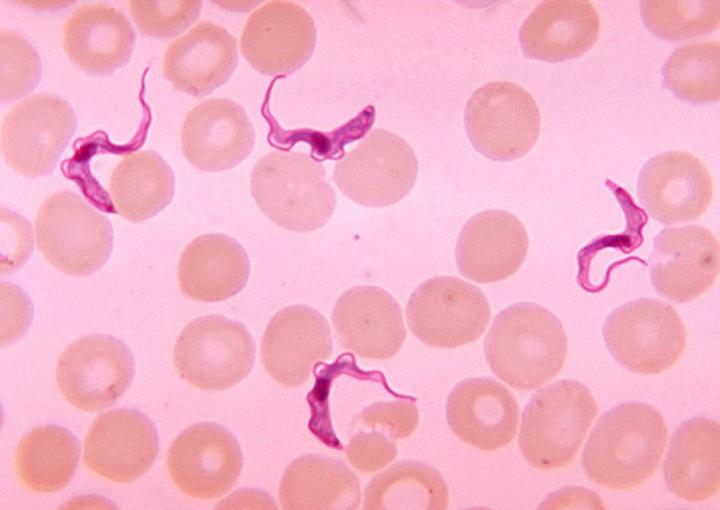Sleeping sickness parasite ‘social behaviour’ could affect disease spread
A new study is the first to show that Trypanosome parasites, which cause sleeping sickness, communicate across species in ways that could affect disease spread and severity.

Sleeping sickness remains a serious threat to human health in parts of sub-Saharan Africa but Trypanosome parasites’ most devastating effects come from their impact on cattle and other livestock, causing major agricultural losses.
A new study indicates that in cattle, different parasite species signalling to each other may influence their survival and ability to spread.
The findings could offer a new way of tackling the disease in the future.
African Trypanosome parasites are spread by the Tsetse fly and cause long-term, and sometimes fatal, infections in humans and animals. Cattle are a reservoir for the disease and up to 25% are infected by more than one species of the trypanosome parasite. The parasites regularly change the proteins on their surface, successfully evading the immune system’s defence mechanisms.
Up to now everything been studied in single infections. The fact that different species signal to each other opens up new possibilities for understanding how transmission and virulence is operating in the context of a real infection in the field where you do get these mixtures of parasites.
Researchers from the University of Edinburgh studied two trypanosome species that co-infect cattle and found that parasite communication may also affect the survival and spread of both species. Trypanosome parasites must control their numbers to ensure they don’t overwhelm and kill their animal host whilst also maximising their ability to spread to Tsetse flies.

The results published in Nature Microbiology show that T. congolense can not only arrest their own growth but also trigger a growth arrested ‘stumpy’ form in T. brucei that optimises its survival in the Tsetse fly. Previous research suggested that only T. brucei were able to arrest their growth and change into the transmissible ‘stumpy’ form.
In the bacterial world, social behaviour is common and has transformed the study and understanding of microbiology. Yet there has been little research on parasites behaving similarly.
The study also revealed that cross-species communication could be competitive rather than cooperative. In established T. congolense infections, coinfection triggered premature growth arrest in T. brucei. The evolution of this competitive behaviour could increase disease severity if a parasite suddenly finds itself in a new host without a rival species.
Targeting the parasite communication system in cattle could offer a new way of limiting the spread of the disease in the future. Tackling the disease is difficult as there are no vaccines for cattle and existing drugs are old and have dangerous side effects. If we knew more about the signals being shared between the parasites that might allow us to manipulate these signals to trigger early growth arrest.
The paper can be found at https://www.nature.com/articles/s41564-017-0014-5

